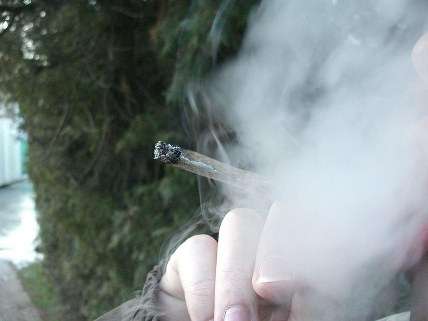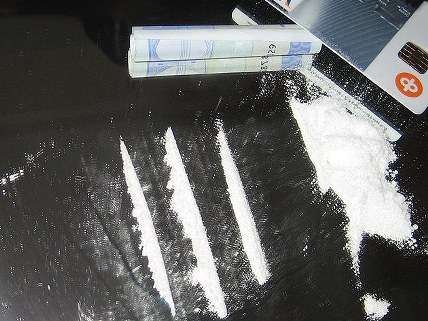Let People Choose Their Own Drug Policies
What if we just allowed people to take drugs in a supportive social milieu that clearly signals appropriate behavior?

In 2014, for the first time in American history, a drug formerly declared illegal was made legal and commercially sold. I am talking about marijuana in Colorado, soon to be followed by several other states.
Of course, this statement immediately calls for several caveats. Marijuana has been previously legalized for medical purposes around the country, with a prescription. And, so, obviously I am referring to recreational drug use being legalized.
Previously, of course, in 1933—with the passage of the 21st Amendment—the United States re-legalized alcohol, after having made its sale, production, and transportation (although not its personal use) illegal in 1920. But alcohol was a very familiar substance, one used traditionally by a great number of Americans (for example, by both Catholics and Jews in religious observances) as well as having been a universal social lubricant in Colonial times.
Alcohol prohibition had been roiling in America for a century when the 18th Amendment banning it for commercial purposes was ratified by three-quarters of the states. Strange to note, while alcohol prohibition was a hot topic during the nineteenth and early twentieth centuries (think Temperance), in the same period opiates were used indiscriminately. Think of the tinctured opiate, laudanum, sold on street corners and over shop counters.
Yet opiates were not considered a particular social or health problem in nineteenth-century America. It was only when addiction was defined as a distinct medical syndrome around the turn of the century that drugs were singled out for special attention. This lead to the Harrison Narcotics Tax Act in 1914, which essentially banned heroin and cocaine use. Marijuana was effectively outlawed at the national level by the Marihuana Tax Act of 1937.
We have added any number of drugs to that list of banned street substances: barbiturates, amphetamines, psychedelic drugs (e.g., LSD), designer drugs (e.g., Special K, or ketamine; Ecstasy). As many people have noted, humans seem to have an inordinate appetite for drugs' mind-altering effects, making the violation of these bans a never-ending social problem.
This struggle results since the urge for intoxication is universal, starting with alcohol. In Uncorking the Past, University of Pennsylvania bio-archeologist Patrick McGovern proved that alcohol has been fermented in every early center of civilization—human society has developed alongside the ethanol molecule.
So we can't be surprised at how commonplace and socially accepted use of different intoxicants has been throughout history. Still, we can only marvel today at the stupendous quantities of alcohol our founding fathers drank, for example at George Washington's farewell party on the eve of the passage of our Constitution—amounts that would stagger even alcoholics in contemporary America.
The media—viewing everything as it does through our current cultural lens—struggles to deal with this reality when it takes a ground-level view of our founding fathers. The History Channel series, Sons of Liberty, turns Sam Adams and Benjamin Franklin into closet alcoholics, which could just as easily be done with George Washington and Thomas Jefferson.
What Sons cannot comprehend is the social cohesion that underlay the controlled drinking of Colonial Americans. According to historian Mark Lender in Drinking in America, the colonial tavern was the main community meeting place, the tavern keeper as prestigious as the town minister. Taverns were filled with wives and children. This setting ruled out drunken misbehavior. The taverns in Sons instead resemble the nineteenth century Western saloon or workingman's bar, where the few women present are prostitutes.
We see that people managed prodigious drinking and regular drug use in the past. But our modern view of addiction as causing uncontrollable substance abuse makes this seem biologically impossible: "there is science that shows addiction, whether it's of (sic) drugs or alcohol, significantly changes a person s brain. These changes result in compulsive behaviors that weaken a person's self-control, qualifying all of it as a complex, chronic brain disease."
And, so, the modern marijuana legalization experiment is of tremendous social and scientific interest. For, while marijuana is no longer seen through the prism of the laugh-along movie Reefer Madness, it is considered potentially addictive. From this perspective, the head of the National Institute on Drug Abuse and the primary spokesperson for the chronic brain disease meme, Nora Volkow, "watches anxiously as the country embarks on what she sees as a risky social experiment in legalizing marijuana….The legalization process generates a much greater exposure of people and hence of negative consequences that will emerge."
Thus we may marvel at the first-year results of the Colorado legalization experiment—massive purchases for consumption of the drug, and yet reduced traffic fatalities statewide in CO and violent crime in Denver, and broad compliance with Colorado's legal restrictions (for example, no public consumption is allowed). Somehow, as noted at the Colorado Pot Guide website: "Most stoners in Colorado are pretty considerate."
California fell short of legalizing marijuana in 2010, instead merely decriminalizing it—reducing penalties to citations with small fines. California's decriminalization, however, unlike legalization laws such as the one in Colorado, applied to youths as well as adults. As a result, the beneficiaries in California included young people, which is reflected in a reduction in overall criminal behavior by youths and not just drug arrests, as well as lower school drop-out rates.

In 2014, California took the radical step of decriminalizing possession of heroin, cocaine, and meth, with results we will look forward to.
What do these developments tell us about the human potential for managing drug behavior? It seems that people develop personal codes of conduct with drugs that are reinforced by how they see others behave and the expectations laid down for their behavior. This process, scientifically, is called the social learning model. It represents the operation of informal social control as opposed to legal regulation.
In a previous column for Reason, I noted how people seemed to manage drug use as well as they do other human appetites before the Harrison Act made drugs illegal. Some people, including Sigmund Freud and William Halsted (the pioneering surgeon), encountered problems with cocaine and narcotics. But their responses when they did were usually to quit or cut back their drug use—the way people deal with other life problems.
As to addiction, as I said in that article, "People may become engaged in intense involvements with love, sex, drugs, alcohol, caffeine, nicotine, gambling, spending, video games, et al. that can impair them and cause them distress, and then just as often reverse their behavior when they feel up to it, and the harm to their lives from their habit becomes clear to them. "
Of course people may seek whatever help they feel can benefit them in this process. Nonetheless, to quote Jiminy Cricket, inhabitants of the 21st Century will need to let their consciences—and values and resilience—be their guides. Our best drug policy is to encourage these beacons, not to undercut them through myths about our inadequacy in the face of drugs. The last century—or two or three—of drug use, drug misuse, and drug policy in America all point us inescapably toward this conclusion.
Dr. Peele is presenting these ideas at the International Cannabis Business Conference in San Francisco, February 15-16.


Show Comments (27)